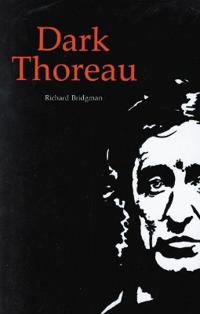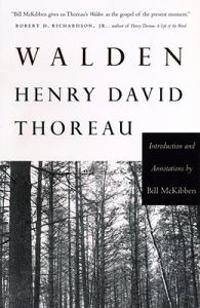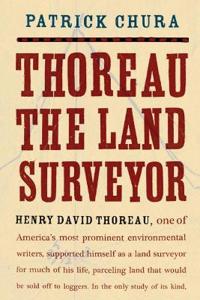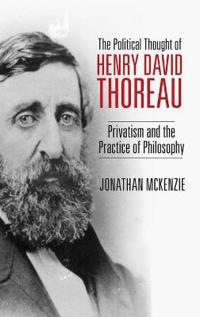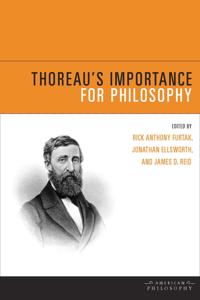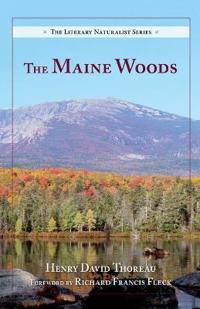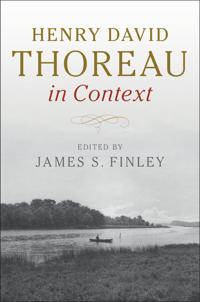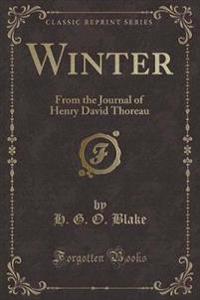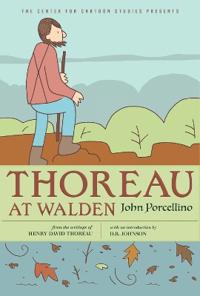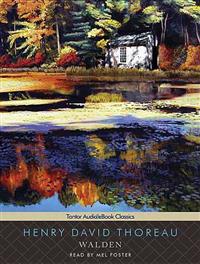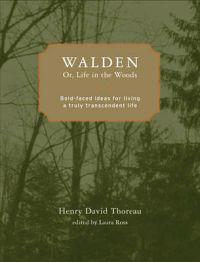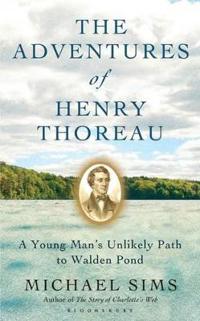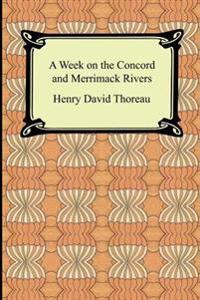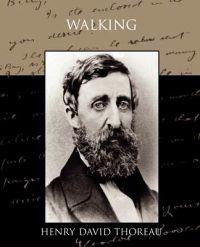Dark Thoreau
ISBN: 9780803261921 - UTGIVEN: 1982-12Henry David Thoreau has suffered from a largely uncritical admiration of his roles as naturalist, economist, political theorist, and expository writer. The evidence this book presents substantially modifies our understanding of his performance of those roles. It draws heavily on the largely unknown [...]
If You Spent a Day with Thoreau at Walden Pond
ISBN: 9780805091373 - UTGIVEN: 2012-10In 1845 in Concord, Massachusetts, Henry David Thoreau began a radical experiment: he built a cabin in the woods and lived there, alone, examining the world around him. He spent his days walking the shores of Walden Pond, growing beans, observing plants and animals, and recording his reflections in [...]
Walden (Häftad)
avHenry David Thoreau
ISBN: 9780807014257 - UTGIVEN: 200408The classic chronicle of a communion with nature at Walden Pond offers a message of living simply and in harmony with nature, in a 150th anniversary edition that includes an updated introduction and annotations by the author of The End of Nature. Reprint.[...]
The Political Thought of Henry David Thoreau
ISBN: 9780813166308 - UTGIVEN: 2015-12Today, Henry David Thoreau's status as one of America's most influential public intellectuals remains unchallenged. Recent scholarship on Thoreau has highlighted his activism as a committed antislavery reformer and proto-environmentalist whose life became a seminal model for the image of the liberal[...]
Thoreau's Living Ethics
ISBN: 9780820328430 - UTGIVEN: 2006-03"Thoreau's Living Ethics" is the first full, rigorous account of Henry Thoreau's ethical philosophy. Focused on Walden but ranging widely across his writings, the study situates Thoreau within a long tradition of ethical thinking in the West, from the ancients to the Romantics and on to the present [...]
Thoreau's Importance For Philosophy
ISBN: 9780823239306 - UTGIVEN: 2012-08The philosophical significance of Henry David Thoreau's life and writings is far from settled. Although his best-known book, Walden, is admired as a classic work of American literature, it has not yet been widely recognized as an important philosophical text. In fact, many members of the academic ph[...]
The Maine Woods (Häftad)
avHenry David Thoreau, Richard Francis Fleck
ISBN: 9780882409597 - UTGIVEN: 2014-02Posthumously published in 1864, "The Maine Woods" depicts Henry David Thoreau's experiences in the forests of Maine, and expands on the author's transcendental theories on the relation of humanity to Nature. On Mount Katahdin, he faces a primal, untamed Nature. Katahdin is a place "not even scarred [...]
On the Duty of Civil Disobedience (Häftad)
avHenry David Thoreau
ISBN: 9780882861302 - UTGIVEN: 1989-01Henry David Thoreau in Context
ISBN: 9781107149229 - UTGIVEN: 2017-04Well known for his contrarianism and solitude, Henry David Thoreau was nonetheless deeply responsive to the world around him. His writings bear the traces of his wide-ranging reading, travels, political interests, and social influences. Henry David Thoreau in Context brings together leading scholars[...]
Winter: From the Journal of Henry David Thoreau (Classic Reprint) (häftad)
ISBN: 9781330708439 - UTGIVEN: 2015-07Thoreau At Walden (häftad)
ISBN: 9781368027106 - UTGIVEN: 2018-09"I am convinced, both by faith and experience, that to maintain one's self on this earth is not a hardship, but a pastime, if we will live simply and wisely." So said Henry David Thoreau in 1845 when he began his famous experiment of living by Walden Pond. In this graphic masterpiece, John Porcellin[...]
Walden - Or, Life in the Woods (Häftad)
avHenry David Thoreau
ISBN: 9781402766671 - UTGIVEN: 200911Thoreau's timeless reflections on his two-year sojourn of self-reliance continues to inspire readers. This book features highlighted passages to ponder, an introduction that examines the text from a contemporary perspective and reflective writing exercises. This pocket-size edition can be taken and [...]
Civil Disobedience (Pocket)
avThoreau, Henry David
ISBN: 9781406501773Large Format for easy reading. Originally published under the title Resistance to Civil Government, the book advocates civil liberties and expresses Thoreau's dislike for the establishment, his disdain for slavery, the Mexican-American War and voting and his desire for a utopia on earth.[...]
The Adventures of Henry Thoreau (Inbunden)
avMichael Sims
ISBN: 9781408830499 - UTGIVEN: 2014-07From Mahatma Gandhi and John F. Kennedy to Martin Luther King and Leo Tolstoy, the works of Henry David Thoreau - author, poet, philosopher, abolitionist, naturalist, surveyor, schoolteacher, engineer - have long been an inspiration to many. But who was the unsophisticated young man who in 1837 beca[...]
Walden (Pocket)
avThoreau, Henry David
ISBN: 9781420922615"Walden" is the classic account of two years spent by Henry David Thoreau living at Walden Pond near Concord, Massachusetts. The story is detailed in its accounts of Thoreau's day-to-day activities, observations, and undertakings to survive out in the wilderness for two years. Thoreau's journal is a[...]
A Week on the Concord and Merrimack Rivers (Pocket)
avHenry David Thoreau
ISBN: 9781420927139 - UTGIVEN: 2006-01

